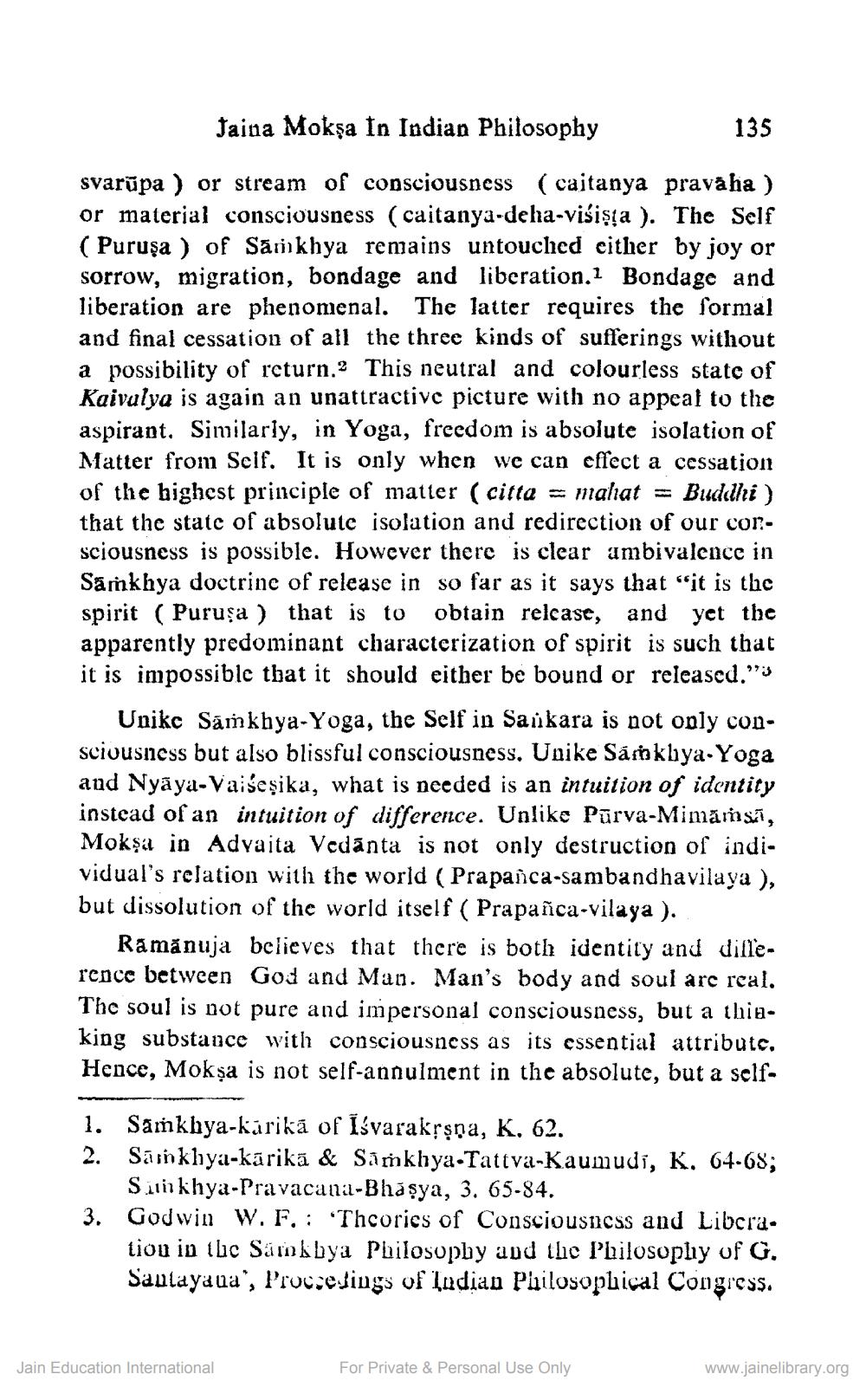________________
Jaina Mokşa In Indian Philosophy
135
svarūpa ) or stream of consciousness (caitanya prava ha ) or material consciousness (caitanya-deha-višişta ). The Self ( Puruşa ) of Sankhya remains untouched either by joy or sorrow, migration, bondage and liberation.2 Bondage and liberation are phenomenal. The latter requires the formal and final cessation of all the three kinds of sufferings without a possibility of return. This neutral and colourless state of Kaivalya is again an unattractive picture with no appeal to the aspirant. Similarly, in Yoga, freedom is absolute isolation of Matter from Seif. It is only when we can effect a cessation of the highest principle of matter ( citta = mahat = Buddhi) that the state of absolute isolation and redirection of our corsciousness is possible. However there is clear ambivalence in Samkhya doctrine of release in so far as it says that “it is the spirit (Puruşa ) that is to obtain release, and yet the apparently predominant characterization of spirit is such that it is impossible that it should either be bound or released.")
Unike Sámkhya-Yoga, the Self in Salikara is not only consciousness but also blissful consciousness. Unike Sámkliya-Yoga aud Nyāya-Vaiseşika, what is needed is an intuition of identity instead of an intuition of difference. Unlike Pūrva-Mimāínsuł, Moksa in Advaita Vedānta is not only destruction of individual's relation with the world (Prapanca-sambandhavilaya ), but dissolution of the world itself ( Prapañca-vilaya ).
Ramanuja believes that there is both identity and dillerence between God and Man. Man's body and soul are real. The soul is not pure and impersonal consciousness, but a thiaking substance with consciousness as its essential attribute. Hence, Mokşa is not self-annulment in the absolute, but a self
1. Samkhya-kärikā of Isvarakļşņa, K. 62. 2. Sainkhiya-kārika & Samkhya-Tattva-Kaumudi, K. 64-68;
Suur khya-Pravacana-Bhasya, 3. 65-84. 3. Godwin W. F. ; 'Thcories of Consciousness and Libcra.
tion in tlic Särkibya Pbilosophy and the Philosophy of G. Saulayana', Proceedings of Indian Philosophical Congress.
Jain Education International
For Private & Personal Use Only
www.jainelibrary.org




